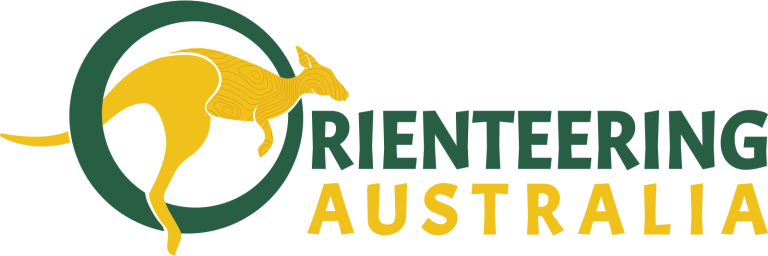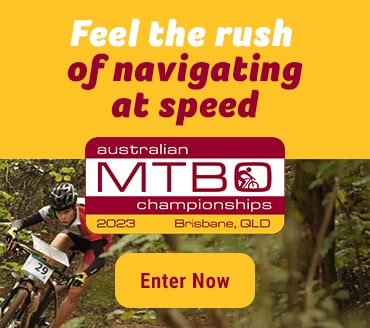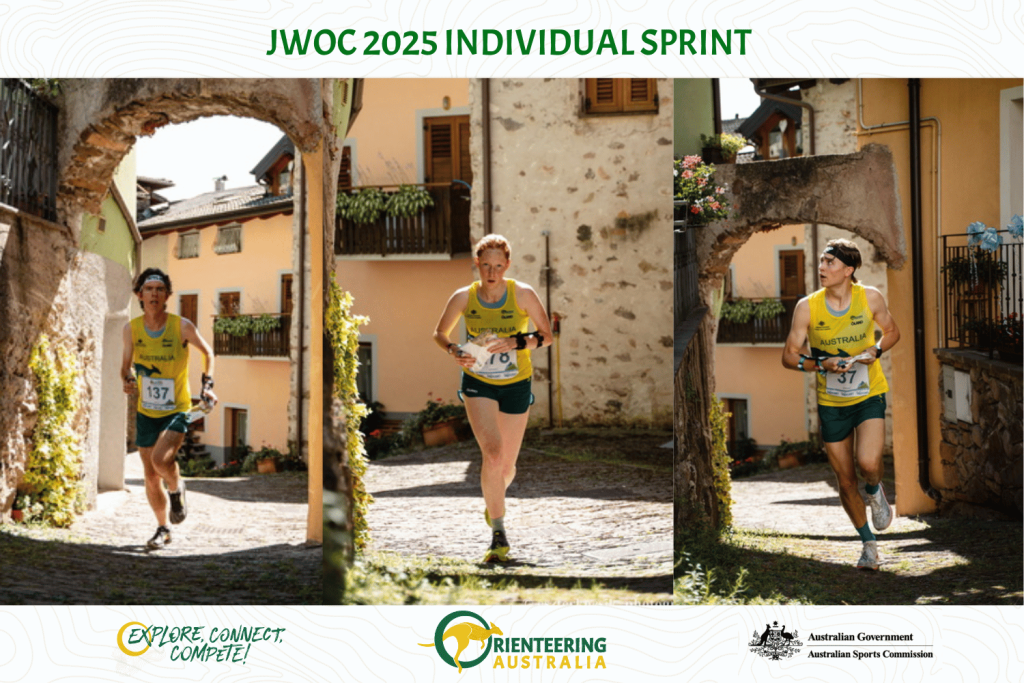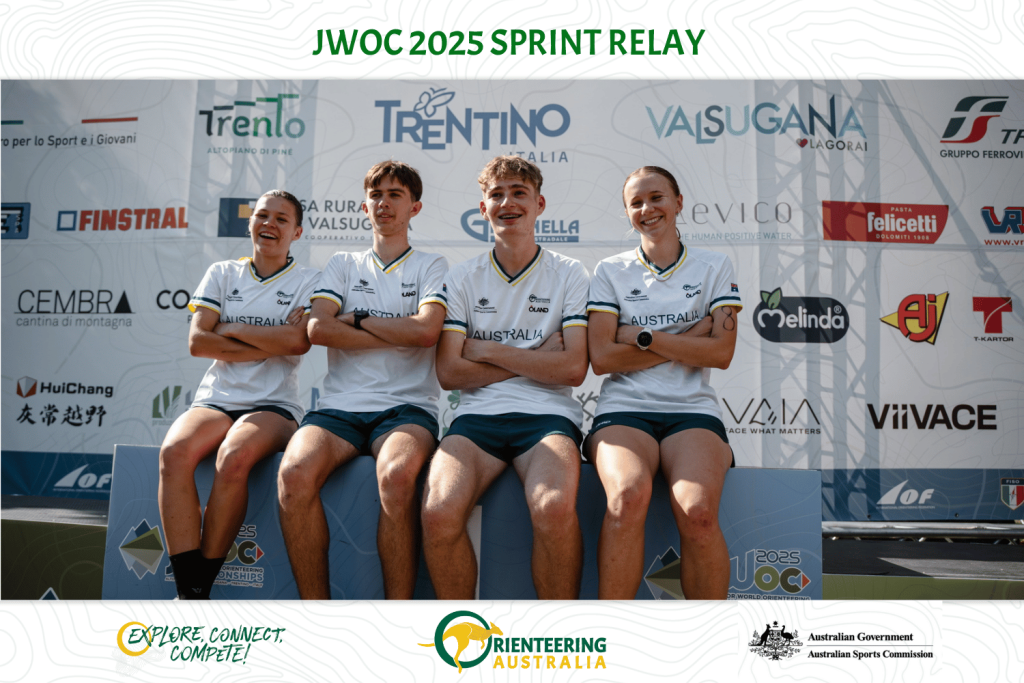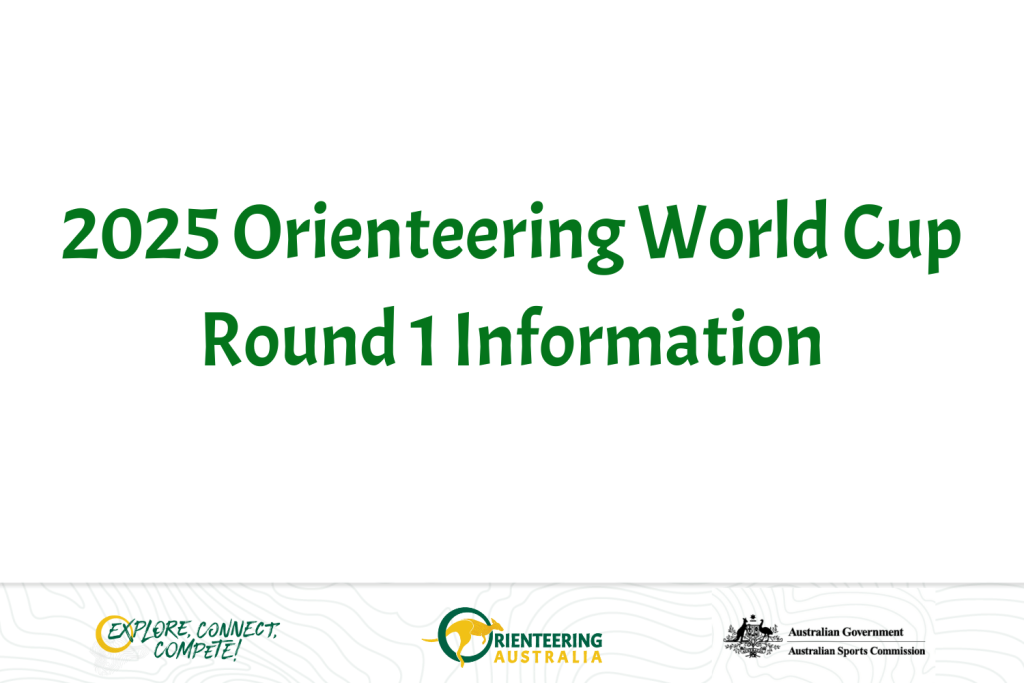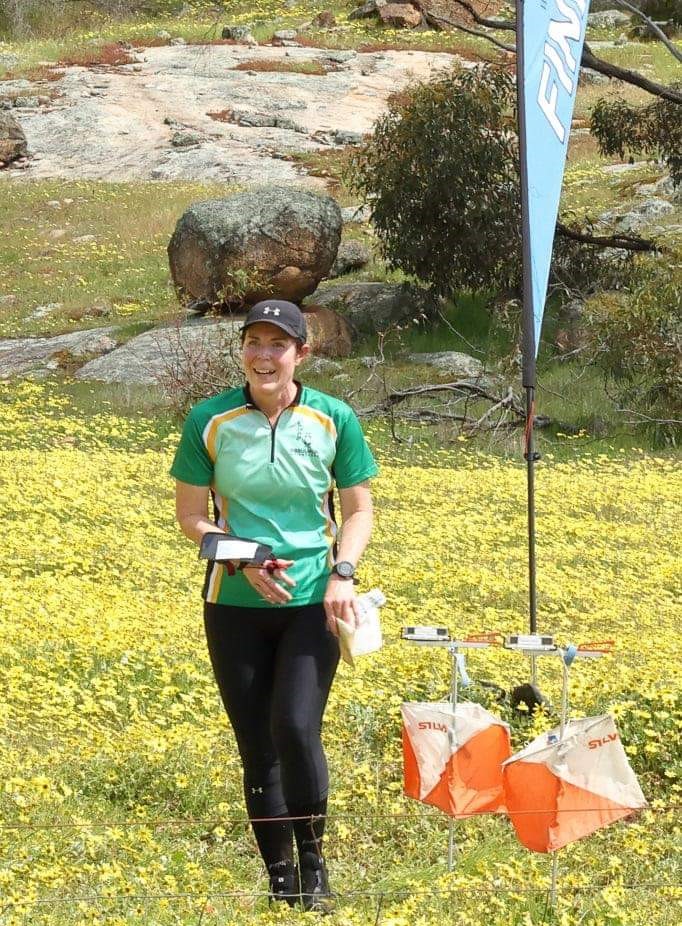
For this month’s athlete interview, we’ve decided to go back and interview another one of our great coaches in Australia and find out a little bit more about their journey and also how they’re giving back to the sport now.
I am lucky to be joined by Rachel West, who is the current coaching convener and NOL/High Performance coordinator in WA, and she has been heavily involved in coaching and high performance in WA for the last five years. She is one of our most dedicated volunteers across the entire country, so it’s great to have her on. She’s also competed in the National League over many years, now doing it mostly for fun.
Thanks, Rachel, for coming along.
In this athlete interview:
- How Rachel started orienteering and her most memorable achievement from racing
- Coaching and high-performance in WA
- Rachel’s experience as a selector on the junior selection panel
- Rapid-fire questions with Rachel
I. How Rachel got into orienteering and her most memorable achievement from racing
I want to start by asking a little bit about how you got into orienteering, I don’t actually know myself. What did the first couple of years that you were doing orienteering look like?
I started back when I was about 13 years old and my family went along after my brother had gone and tried it with one of his friends from school. He said the whole family should go and have a go, and so we all went out. My very first event, my dad took the map and I just ran behind him. So pretty much just a run for me the first time. At the next event we went to, my dad went out by himself and my mum and I were left to figure it out on our own. We went from there and my family got quite into it.
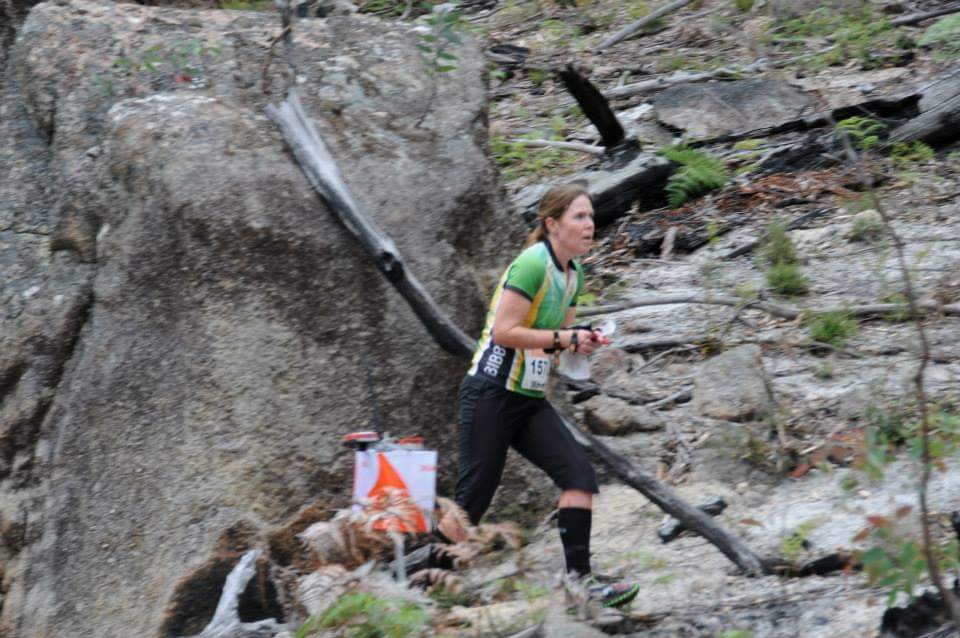
Would you say that you enjoyed it from the start or did it took a few years to fall in love with orienteering?
I was quite interested in the navigational challenge. I wasn’t that fit when I started, so I think I found the physical challenge difficult, but I quite enjoyed that.
After I started getting fitter, I started doing some running between orienteering events and then I started to really fall in love with running. And now I can’t imagine not running!
I think that’s a common experience for a lot of us. We fall in love with running after doing it because at first we saw it as a barrier and we wanted to improve it. Then down to the slippery slope, we can’t imagine life without it anymore!
Later in life, did you do more elite or competitive racing in junior elites or senior elites?
With my junior career, I only travelled once with the schools team when I was 16 years old. In year 12, I couldn’t go because of mock exams. But I really enjoyed experiencing the different terrains in that one year of schools, so I was really keen to go and do more orienteering after that experience.
I started doing a few Easters and Australian Champs over east when I could while I was going through uni. Then after I finished uni, I ended up partnering with Craig Dufty and he was very keen so the two of us started doing National League races and we really loved it. We went to almost every National League round when I was between the ages of 22 and 35!
That’s cool. What years would that have been?
I think 1999 was our first year of going. Back in the very early days, it was WA combined with some of the other outer states to make a team. Then we had Andy Hogg move over to WA with Natalie Smith and we started forming our own WA team. That was really exciting, actually having a separate WA team and fielding a team at all rounds.
That is cool. I know in Tasmania, who I run for, we have a similar thing. We get really excited when we can send a full team and there’s a lot of community around that. We really get around each other and it’s a really great environment. I think that’s pretty special for the small states and it sounds like it was maybe similar back then for WA.
Was the national league any different back then?
When I first did a race, I would say the only people going were people that were trying out for a world champs team. There weren’t many people racing. Then as the National League started to encourage more team competition, we really saw it progress to having a lot more people involved. It was much deeper fields that didn’t just include world champs people, but people like myself that just really enjoyed the interstate competition.
I feel like we might be getting towards that again with the current national league, which is good!
Do you have a particular favourite race or your most memorable achievement from your time racing?
After having my kids, I was lucky enough to have Ken Johnson as a physio and he offered to do running programmes for me. So, I got the fittest I’ve ever been after having my two kids.
I ran an Easter in WA where I went into it probably a little bit unwell but actually came out with my best placing, 5th in the women elite.

Fantastic. Was that when it was at Frazzle Rock in 2011?
Yes that was the one.
That’s cool. I think we see that a bit with some of our women elites having really strong performances after they have their kids. It’s great to see them make strong comebacks to racing at the highest level!
II. Coaching and high-performance in WA
More recently, after your kids started to get a little bit older, you’ve started to get involved more especially in the coaching and high-performance side of things in WA but also nationally. Can you tell us a little bit about what you’ve been up to over the past five years?
We haven’t had a lot of people in the elite space for a number of years in WA. I was putting on a lot of coaching for juniors, particularly for schools teams and trying to accommodate any elite people into all the trainings that we were doing. So there was something for them.
We’re getting to a space now where we’ve actually got quite a good crew of juniors that are just starting to shift out of that schools team space. It’s getting quite exciting and we want to start being able to provide something separate for them that’s a little bit more at their level. We try to keep that group moving through, keep them getting together, enjoying training and socialising together.
Is there anything specific you think you have been doing or anything that you’ll maybe try to do in the future to work on that? Is there anything you see that’s key to helping people stay in the sport when they’re past school age?
I think having a group come through all at once is helpful because these kids have known each other and have been friends for a number of years. If they know that those other friends are going to be at events and trainings, then that’s a real motivation to get to those events and trainings. We’ve got some people that are really reliable in turning up to every event and every training that’s on. And I think having that little group, that core group that’s always there, makes it more attractive for other people to join in.
I agree, I think it’s important to have that “team” aspect or community. We see that being a key part in other sports. There are lots of people playing local footy or netball for a really long time, well into their 20s, not so much for the competitive side but for the social side. It’s the community that keeps them turning up and enjoying themselves. It’s really cool seeing you implement that in orienteering.
We’re aiming to have a midweek orienteering training session every week and we try to have something once a fortnight as a bush training session. That keeps a fairly regular schedule of people getting together. We also try to do some things at events sometimes. Like this weekend, after the regular sprint there’ll be a super sprint event, which will be similar to a mass start. Head-to-head racing can be a little bit more exciting at the event, so we’re trying to implement a few things like that to make it more fun.
I like the sound of that! There’s probably people that will be reading this going, “that sounds like a good idea and maybe that’s something that we can look at implementing”. And I think the results speak for themselves. You were telling me offline that for the NOL round in Queensland next weekend, which is a long way from WA, that WA will be fielding both a junior and a senior sprint relay team. That is pretty cool because I think that is a challenge for some of the bigger states! Sounds like things are starting to turn the corner in WA.
It’s really exciting. We haven’t had many people in this elite space for quite a while. So, to actually fill a junior and a senior relay team, we’re really proud.
You should be and I think it speaks a lot to the work that you and others are doing over in WA.
III. Rachel’s experience as a selector on the junior selection panel
The last thing I wanted to touch on briefly was being a selector this year. You’ve done so much in the coaching and high-performance space, but you’re continuing to give back and this year you are a selector on the junior selection panel.
What made you want to get involved there? Or what made you say yes when we cajoled you into doing it?
Well, I wasn’t looking for the job, haha. When I got asked I thought, well, why not? I feel as though sometimes in WA we don’t put our hand up for these jobs and expect people from the east to take them on. So when I was asked, I thought I should get involved. It was a really tough job. I will say it was tougher than I thought it would be. It’s certainly a very deep field and it was very close this year. It was a very difficult decision to make.
Definitely. When I did it a few years ago it was hard. And it looks like the depth in the juniors is only getting better, which is awesome, but it makes the selector’s job even harder. I didn’t envy the selectors this year, but thanks so much for giving back and doing that tough job. It’s rewarding in a way, but it’s somewhat of a thankless job because it’s you who has to make the tough decisions.
It’s certainly hard to leave some of those people out, that’s for sure.
IV. Rapid-fire questions
What’s your favourite map? Frazzle Rock is one of them, that’s for sure.
What’s your favourite terrain to run on? Definitely granite, any sort of granite and I am a happy girl.
Do you prefer Sprint or Bush orienteering? I probably prefer Bush, but I do actually really like Sprints as well.
Where has been your favourite place to orienteer overseas? We haven’t done a huge amount. Norway, Sweden, Switzerland, Scotland. I would say I probably love Scotland the most actually. We had just come from Switzerland, which I loved, but I was over steep ups and downs. Scotland was interesting navigationally, but just a little bit milder on the physical side.
What’s one thing you like to eat or drink before an orienteering event? If it’s mid-morning I’ll just have my usual breakfast, some cereal. But if I was doing a longer race in the middle of the day, I would usually go some sports drink and a banana closer to the race.
What do you do outside of orienteering? What do you do for work? I help ophthalmologists, eye doctors or eye surgeons. I work with them doing lots of measurements and photos and helping them with their patients.
If anyone wants to get in contact with you, what’s the best way to do that? Probably just to send me an email, you can get me at rachelwest5666@gmail.com.
A big thank you to Rachel West for being part of our athlete interview series and having this interview with Brodie Nankervis!
